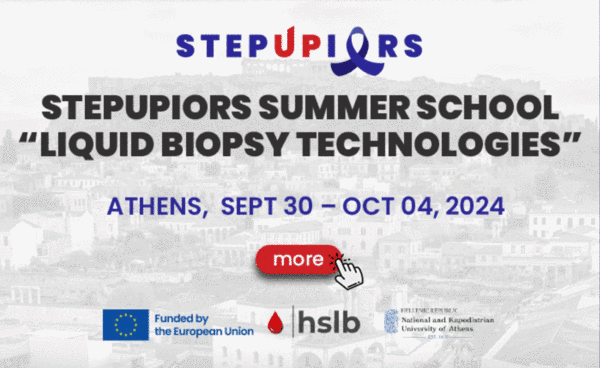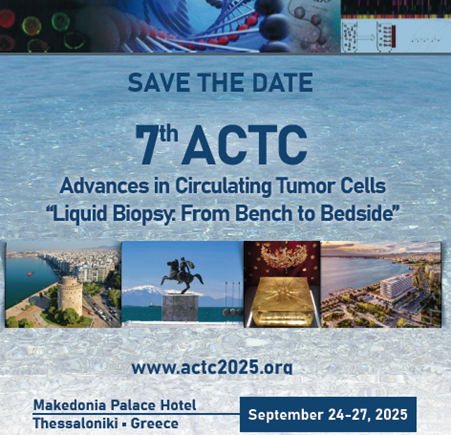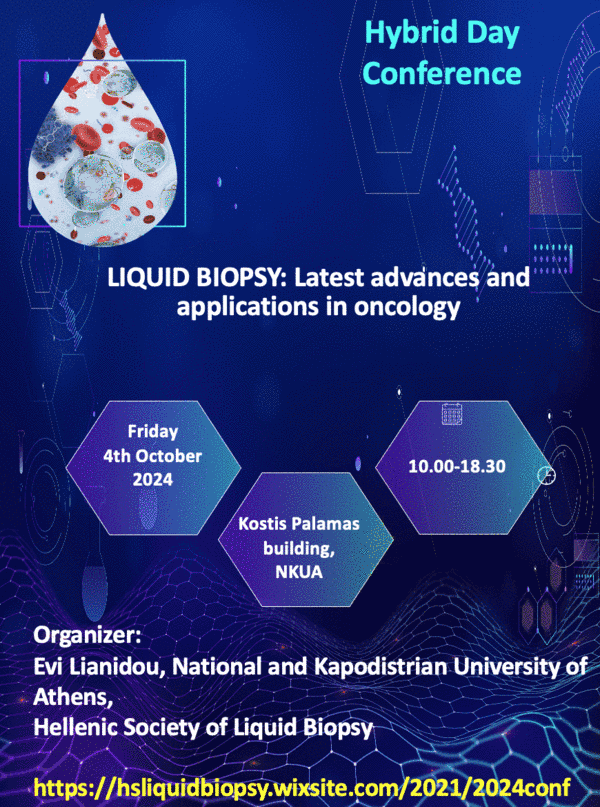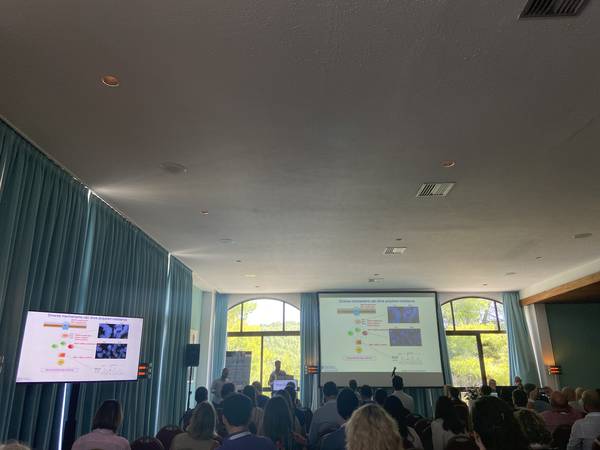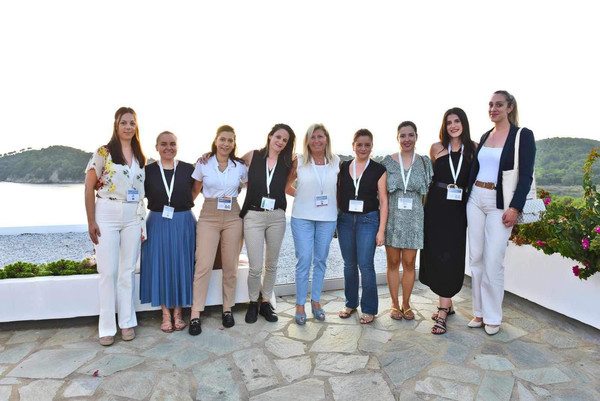Department of Chemistry
Analysis of Circulating Tumor Cells Laboratory
CBS Project

OVERVIEW
CANCER blood-scan (CBS) is a research project funded by the “Competitiveness, Entrepreneurship and Innovation” (EPAnEK) Operational Programm with scientific officer Prof. E. Lianidou, Professor of Analytical Chemistry- Clinical Chemistry, Department of Chemistry, EKPA. In the program participate Sub. Prof. A. Psyrri, Attikon Hospital, Medical School, EKPA, Prof. C. Papadimitriou, Aretaio Hospital, Medical School, EKPA, Prof. A. Stratigos, Syggros Hospital, Medical School, EKPA, Prof. S. Kakolyris, Medical School, DUTH, and the PHARMASSIST company. The total budget of the project reaches the amount of EUR 893.058 and its duration will be three years.
The aim of the CANCER blood-scan project is the development and clinical validation of innovative cancer biologic detection methodologies through liquid biopsy. A key goal of this project is to translate the results of basic research into new commercially available products, leading to the application of personalized therapy by liquid biopsy into the clinical routine. To achieve this goal, the research team gathers experts from the academic community, clinical research and the company, contributing to the development and commercialization of in-vitro diagnostic products / kits, with the aim of establishing liquid biopsy in clinical practice.
News-Events
-
Hybrid Day Conference
LIQUID BIOPSY: Latest advances and applications in oncology
-
ISLB ANNUAL CONGRESS 2020
FRIDAY October 30th, 2020
-
The Nobel Prize in Chemistry 2020
Emmanuelle Charpentier & Jennifer A. Doudna
Accreditation
Analysis of Circulating Tumor Cells (ACTC) Lab
ACTC lab main interests
Our lab is specializing on the development, analytical validation and clinical evaluation of molecular assays for the detection, enumeration and molecular characterization of CTCs.
More specifically, our main research interests are on:
a) development of ultra-sensitive diagnostic methodologies based on droplet digital PCR (ddPCR) and real-time PCR, for the detection of mutations in CTCs and ctDNA (PIK3CA, ESR1, BRAF, KRAS, EGFR etc.)
b) development and clinical evaluation of single and multiple RT-qPCR and RT-ddPCR methods for the detection, quantification and molecular characterization at the level of gene expression in CTCs (PD-L1, AR-V7, CK-19, CK-8, CK -18 etc.)
c) counting and molecular characterization of CTCs with the CellSearch system, FDA approved for metastatic breast, prostate and colorectal cancer.
d) development of liquid bead arrays methods based on multiple RT-PCR for the detection and molecular characterization of CTCs (Luminex system)
e) study of epigenetic modifications in CTCs and ctDNA in the blood of patients with various types of cancer: breast, lung, colon, ovary, prostate, etc.
f) evaluation of circulating miRNAs and EVs extracellular vesicles as biomarkers in various types of cancer.
ACTC lab is ISO-15189 accredited for liquid biopsy analyses.
1) "7th International Symposium on Minimal Residual Disease", Athens 2009
2) "Advances in Circulating Tumor Cells: From Basic Research to Clinical Practice", Athens 2012 (http://actc2012.chem.uoa.gr/actc2012.org.144-76-185-131.winzone45.grserver.gr/index.html)
3) "Advances in Circulating Tumor Cells: From Basic Research to Clinical Practice", Crete 2014 (http://actc2014.chem.uoa.gr/www.actc2014.org/index.html),
4) "Advances in Circulating Tumor Cells: From Basic Research to Clinical Practice”, Rhodes 2017 (http://actc2017.chem.uoa.gr/actc2017.org/index.html)
5) "4th ACTC, Advances in Circulating Tumor Cells, Liquid Biopsy: Latest Advances and Future Challenges", Corfu 2019 (http://actc2019.chem.uoa.gr/actc2019.org/index.html)
6) 5th ACTC “Liquid Biopsy in its best” (ACTC 2021), Kalamata 2021 (https://www.erasmus.gr/microsites/1206)
7) 6th Advances in Circulating Tumor Cells: “Liquid Biopsy and Precision Oncology: Where do we stand now??”, Skiathos 2023 (https://www.erasmus.gr/microsites/1261)






